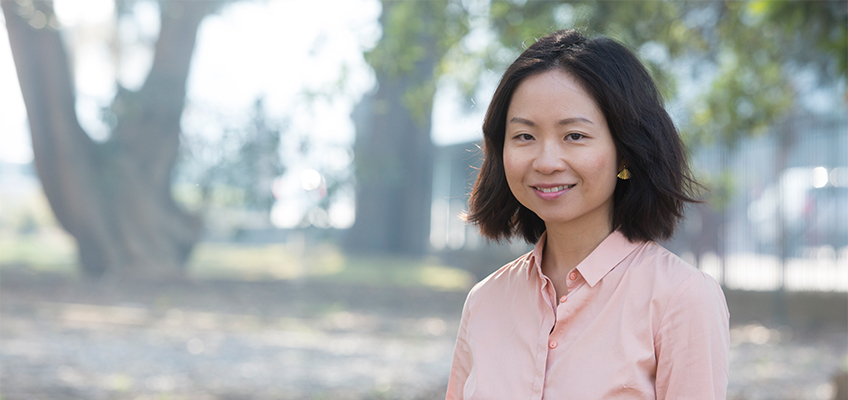11 Aug 2016

HEIDI DOUGLASS | h.douglass@unsw.edu.au
The role of The Dementia Momentum® in raising awareness about the disease inspired Jessica Lo to work for CHeBA, with her primary role being study coordinator on the STROKOG consortium.
“The Dementia Momentum® is a great initiative which brings together researchers and the community,” said Ms Lo. “It allows the community to invest in bringing about positive, significant social change. By bringing an increased investment in dementia research, this initiative is allowing researchers to continue to work on finding the risk and protective factors for the disease.”
“Despite the huge burden of dementia, dementia research is underfunded and there are still a lot of unknowns relating to the risk factors for dementia. Therefore, there is huge potential for our research to make a large impact in partially preventing or delaying the onset of dementia, which would greatly improve the lives of many people.”
Starting the role in January, Ms Lo said that while the workload has been significant, CHeBA’s innovative push for creating international-scale, big data-sets is a key motivator. After working on STROKOG for six months, 26 members have already signed the Memorandum of Understanding to share their data and Ms Lo is currently preparing the first paper for publication.
“While academia can sometimes be competitive, at CHeBA we work collaboratively by setting up a number of international consortiums, including STROKOG, to address universal issues such as healthy ageing and age-related diseases. I think it’s our collaborative and international effort that makes CHeBA unique.”
Launched in 2015, STROKOG (International Consortium of Studies of Post-stroke Cognitive Disorders) brings together prospective post-stroke studies from around the world in order to better understand the longitudinal course of cognitive impairment after stroke and ask questions in relation to risk and protective factors. The findings of STROKOG will help guide preventative strategies and health policy both in Australia and internationally. Currently studies from Australia, Hong Kong, Singapore, Korea, China, Poland, France, Finland, Ireland, the UK, Sweden, Germany, South Africa, Nigeria and the USA are represented.
“I look forward to being able to disseminate STROKOG’s results to our collaborators and to the community. I’m excited about seeing our research being widely talked about and to see public interest in our consortia findings from The Dementia Momentum initiative,” said Ms Lo.
“Probably one of the misconceptions is that there is nothing a person can do once they have dementia. It is important the public know there are ways to slow its progress and our research certainly aims to find ways to delay the onset of dementia.”
“Ageing and dementia are universal concerns. If people care about their health then they should also care about ageing brain health. Brain disorders such as dementia take a devastating toll on not only those with the disease, but entire families as well as their friends.”
Ms Lo holds a Master of Science in Medical Statistics from the London School of Hygiene and Tropical Medicine. She was a medical statistician at King’s College London for four years, including working on clinical trials. She also has experience in museum studies, web marketing and graphic design. In her spare time, Ms Lo plays music, exercises four times a week and eats a healthy fish-based diet to protect her brain health.
Jessica Lo is funded by the Vincent Fairfax Family Foundation.
